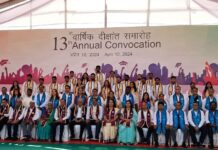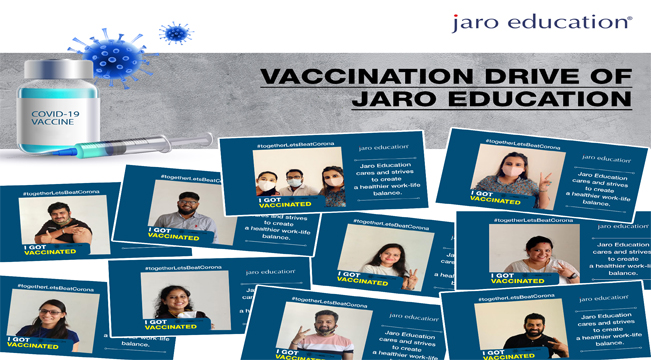By Siddharth Ladsariya, Founding Volunteer, Young Volunteers Organisation
Siddharth Ladsariya is a successful entrepreneur, philanthropist, angel investor and an enthusiastic mentor. He has been actively investing since 2008 and has invested in over 150 start-ups till date. Siddharth is the Founding Volunteer of Young Volunteers Organisation (YVO), an Indian non-profit organisation that started in 2015. YVO is focused on sustainable development causes, it bridges the trust deficit between the donors and the NGO’s. Over the last 7 years YVO has donated more than 5.3 crores towards 92 diverse causes and impacted 100000+ lives especially in the areas of Women Empowerment, child education, Farmers Welfare & Skill development. Siddharth also founded Everest Fleet Pvt. Ltd., a fleet management company in October 2016, which is now one of the leading players in the fleet market, with a fleet of 5000+ cars, operating in Mumbai, Bengaluru, Delhi and Hyderabad and is a trusted partner of UBER.
Curbing Poverty and Sharing Responsibilities – A Path Forward
The world observes 17 October as the International Day for Eradication of Poverty. The aim is to raise awareness about the people living below the poverty line. United Nations acknowledges the day as a chance to understand the struggles and strife of those living impoverished lives. It provides these people a chance to talk about their concerns and recognise their fight against poverty.
2022 marks the 30th anniversary of the International Day for the Eradication of Poverty. Dignity for All in Practice is the theme for 2022. The theme encompasses the importance of dignity and how it is a fundamental right for all human beings. It is not an abstract concept. It is something that belongs to everyone. People living in poverty have been denied their dignity, rights and respect time and again.
As per the World Bank, more than 1.2 billion people have risen out of extreme poverty since 1990. About 9.2% of the world survives on less than USD 1.90 daily. This number was a staggering 36% in 1990.
The pandemic and its effects threaten to reverse all the years of progress against global poverty and economic inequalities. It also puts at risk the future of many children. It is no surprise that children and youth account for two-thirds of the world’s poor, and women represent a majority globally. About 70% of people older than 15 living in extreme poverty have no schooling or only some primary education.
The COVID-19 pandemic exposed social protection system gaps and failures. It also highlighted the structural inequalities and diverse forms of discrimination that deepen and perpetuate poverty. Climate change and its effects are also responsible for adding up to poverty. These impoverished communities have borne the brunt of natural disasters and environmental degradation much more than anyone else, destroying their homes, crops and livelihoods. The issues plaguing include dangerous work conditions, lack of nutrition, housing facilities, vocational training and access to healthcare.
How can society help curb poverty?
As per the Human Development Report 2021-22, India ranks #132 in 2022 compared to #130 in 2020 on the Human Development Index (HDI) in the wake of the Covid-19 pandemic. These statistics can improve by adequately implementing the government’s poverty-alleviating schemes. India can cut down poverty by empowering the rural poor with optimal use and management of resources. These schemes target the multi-dimensional deprivations the poor face by providing them with food security, employment, housing and wages. These schemes aim to create sustainable mechanisms leading to rural development.
As a responsible society, we can help curb poverty in several ways:
– People can partner with several non-Governmental organisations and do their bit by donating or volunteering with them. NGOs support several causes that aim to empower the less privileged by training them with skills that will help them build sustainable incomes and provide them the opportunities. NGOs need volunteers and donations from time to time to keep their initiatives going.
– Businesses, Corporates and Conglomerates can play a part by contributing to these causes. This contribution is not just in the form of donations but also in the form of volunteers, guidance and advice. These contributions can help NGOs provide the necessary aid in infrastructure, equipment, or employment support and also manage the whole project seamlessly.
– Non-Governmental Organisations play a significant role in helping society. They are the bridge that connects those in need with those who can help. India has several NGOs that strive to uplift people and give them a purpose and opportunity. This help is provided through education and vocational training to empower everyone. Donations are the fuel that powers any cause and NGOs go all out to reach out to people and get them to be a part of their initiatives and support their causes. A small donation can make a significant difference to someone who needs it. Young Volunteers Organisation recognises the challenges that millions of people suffer and makes serious efforts to do its bit by providing aid to those in need.
Government and Non-Governmental agencies have joint programs aimed at helping people. Together, these two entities, along with responsible citizens, can work on providing food, water, sanitation, healthcare, education and economic opportunities. It is our shared responsibility to help these communities develop and flourish in whatever way we can.






























